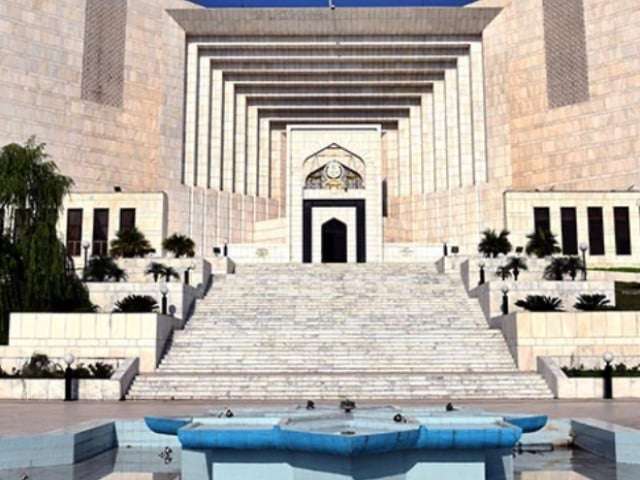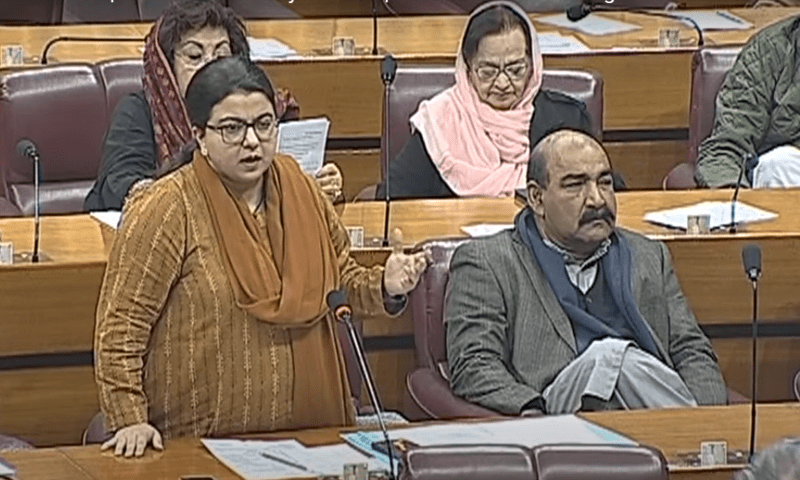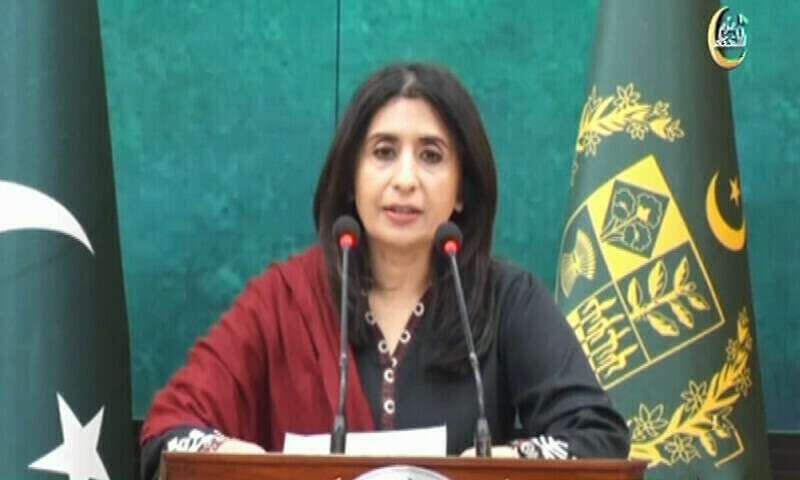SC Questions Military Trials for Army Officers in Jinnah House Security Breach Case
In a significant development, the Supreme Court of Pakistan has raised critical questions about the involvement of army officers in the May 9, 2023, Jinnah House security breach and the subsequent military trials. During the hearing of intra-court appeals challenging the trials of civilians in military courts, Justice Hasan Azhar Rizvi raised pointed inquiries about whether any military personnel had faced a trial in relation to the security breach at the Corps Commander’s House in Lahore.
The incident, which saw individuals breaching the security of the high-security Corps Commander’s residence, is a serious matter, especially given its potential implications for national security and military authority. Justice Rizvi emphasized that the intrusion into the Corps Commander’s House was undeniably a security breach, raising questions about accountability and military involvement.
May 9, 2023: A Security Breach at the Corps Commander’s House
Details of the Incident
The events of May 9, 2023, have left an indelible mark on Pakistan’s political and security landscape. Protestors, during a period of heightened unrest, managed to break into the high-security Corps Commander House in Lahore, sparking questions about the adequacy of security measures at military installations. Justice Hasan Azhar Rizvi of the Supreme Court called it a clear security breach, asking, “Did people manage to reach the Corps Commander’s House on May 9? The entry of people into the Corps Commander’s House is undoubtedly a security breach.”
In his remarks, Justice Rizvi was unequivocal in pointing out that such an event posed a grave security concern. The breach raises significant questions about how such a high-security installation could be infiltrated, as well as about the responsibility of military officers in preventing such incidents.
Impact on National Security
This breach not only undermines the security of a military establishment but also highlights potential gaps in the military’s internal systems. The intrusion came at a time when Pakistan was already experiencing political instability, and the army’s image as a pillar of national security was on the line. With the breach of the Corps Commander’s House, the military now faces increasing pressure to not only investigate the incident thoroughly but also to ensure that such breaches do not occur again in the future.
Intra-Court Appeals: The Question of Military Trials for Civilians
During the court proceedings, the constitutional bench, led by Justice Aminuddin Khan, heard appeals challenging the trial of civilians under military courts following the May 9 unrest. This judicial review raised important legal questions regarding the role of military tribunals in trying civilians and whether such trials align with Pakistan’s constitution.
Justice Musarat Hilali’s Remarks on Civilian Disputes
Justice Musarat Hilali brought an important perspective to the discussion. She asked, “If a soldier has a dispute with a civilian in the cantonment, where would the case go?” This question was aimed at understanding the jurisdiction of military courts in cases where there is no clear involvement of military personnel in unlawful activities. The Defence Ministry’s lawyer, Khawaja Haris, clarified that civilian disputes were distinct from military-related offenses and should not be viewed through the same lens.
The Defence Ministry’s Argument: Civilian and Military Court Jurisdictions
The Defence Ministry’s counsel, Khawaja Haris, argued that the issue of military trials was being overextended. He stated that while the law of military trials had been in place since 1967, it applied primarily to military personnel engaging in unlawful activities related to national security. However, he emphasized that even during peaceful times, civilians who interfere in military matters, or those who cause damage to military properties, could be subjected to military court trials.
Justice Rizvi responded by inquiring, “There must be a mastermind behind this; who orchestrated the conspiracy?” He pointed out that even though civilians might have been involved in violence and property damage, there had to be a deeper investigation into who had orchestrated the events leading to the May 9 breach.
The Role of Military Officers in the May 9 Incident
Was the Army Complicit in the Incident?
Justice Rizvi raised another crucial question: Was any military officer tried for involvement in the events of May 9? He inquired, “How did people manage to reach the Corps Commander’s House? Wasn’t entering the Corps Commander’s House a security breach?” The Defence Ministry’s lawyer responded that the charges against the protestors were related to property damage and that no military officer had been charged in connection with the incident.
This inquiry opens the door for a deeper investigation into whether military personnel played any role in facilitating the breach or whether there were lapses in security protocols that allowed such an incident to unfold. The military’s role in these events remains a key concern, and the Supreme Court’s questioning signals the need for accountability at all levels, including within the military hierarchy.
The Official Secrets Act and Jurisdiction of Military Courts
Jurisdictional Issues: Civilian vs. Military Courts
Justice Mohammad Ali Mazhar pointed out that under the Official Secrets Act, certain crimes are reserved for trial in military courts. The discussion about whether civilian protesters could be tried in military courts stems from the nature of the crime and its potential impact on national security. While the law specifies which crimes fall under military court jurisdiction, there is considerable debate over the extension of military trials to civilians.
Justice Musarat Hilali also raised a pertinent point regarding civilians who may have been unaware of the significance of their actions during the May 9 unrest. She noted that some of the protesters might not have understood the full extent of their actions and asked whether such individuals should be held to the same legal standards as those who knowingly violated military installations. The Defence Ministry’s lawyer clarified that those who were unaware of the significance of the events were not being tried in military courts.
The Larger Debate: Military Trials for Civilians
Can Civilians Be Tried in Military Courts?
One of the central issues raised in the hearing is whether civilians should be tried in military courts for actions related to national security breaches. The Defence Ministry’s lawyer asserted that the trials of civilians were not new and were based on legal provisions that had been in place for decades. However, the legal community and human rights advocates have raised concerns about the fairness of such trials, particularly given that military tribunals do not provide the same level of transparency and procedural safeguards as civilian courts.
This debate is not just a legal matter but a constitutional issue, as it touches on the delicate balance between national security and the protection of civilian rights. The Supreme Court’s involvement in this case highlights the tension between the military’s role in safeguarding national interests and the judiciary’s responsibility to ensure that citizens’ rights are protected under the Constitution.
FAQs:
1. Why is the Supreme Court questioning the trial of civilians in military courts?
The Supreme Court is examining whether the military trials for civilians involved in the May 9 incident are legally justified and in line with constitutional protections. It raises concerns about the extent of military court jurisdiction over civilians.
2. What happened during the May 9 security breach?
On May 9, 2023, protestors managed to breach the security of the Corps Commander’s House in Lahore, a high-security military facility, raising questions about security lapses and potential involvement of military personnel.
3. Are military officers involved in the May 9 breach being tried?
As of now, no military officer has been charged in connection with the May 9 breach, and the focus has primarily been on prosecuting civilians for property damage and other offenses.
4. Can civilians be tried in military courts in Pakistan?
Civilians can be tried in military courts for certain offenses related to national security, particularly those involving military installations or interference in military affairs. However, this practice is controversial, and the Supreme Court is scrutinizing its application.
5. What is the role of military tribunals in Pakistan?
Military tribunals in Pakistan have jurisdiction over military personnel and offenses related to national security. They are also tasked with trying civilians who interfere in military matters, though this practice has been challenged in court.



